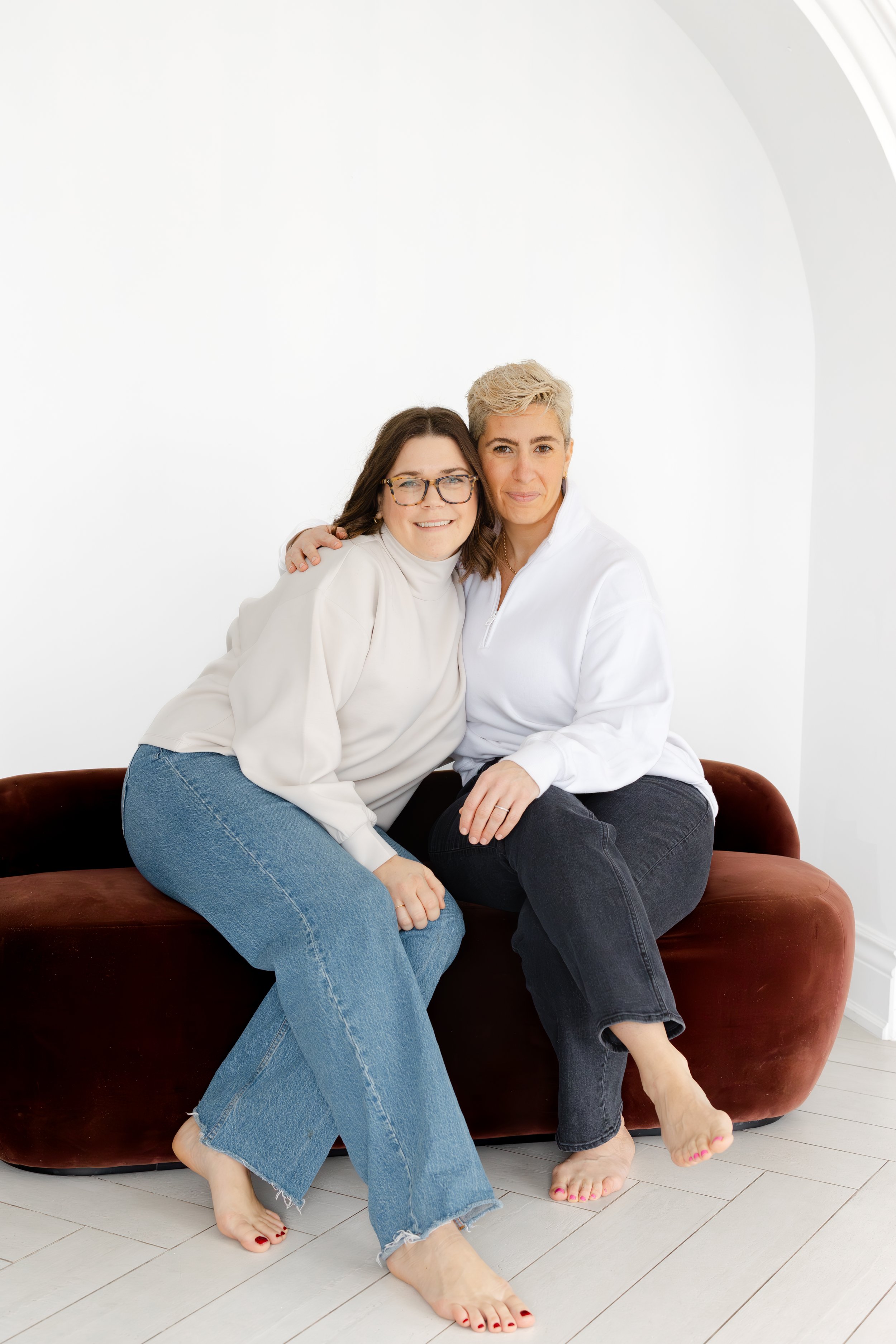Wtf is Group Therapy? And is it for me?
We’re all familiar by now with our individual therapists. She’s likely been a gem in your life over the years, you’ve built a trusting and secure relationship with her, and your besties know her on a first name basis.
She’s a staple in your life and in your mental health. We’re millennials after all, of course we’ve budgeted for regular therapy!
But WTF is group therapy? Isn’t it for people who attend AA? People in an inpatient psychiatric program?
And then there’s group in ‘Working Mom’s’ ( if you haven’t yet watched, we highly recommend for a good laugh )
Here’s the thing:
Up to 20% of women suffer from postpartum depression, and 10% with postpartum anxiety. These stats are likely higher now, in 2024, and also because of under-reporting. Perinatal mood disorders overall affect 10-15% of all new mothers, but can be much higher for women from Black and Indigenous populations.
These stats are a just a few reasons why a Maternal Mental Health Group has been developed and has been at the core of what we offer at Moon + Gem. But it’s not the only reason. We’ve been in it, too- and this is the group we would have wished for ourselves.
Perinatal group therapy supports a reduction in depression and anxiety, and an increase in self-esteem and adjustment to parenting. Group therapy serves to decrease social and emotional isolation, and improve marital and familial relationships. A group setting presents a space for women to develop strategies to strengthen their interpersonal skills at a time when feelings of isolation are heightened (nap trapped much?)
The social networks that women create in group therapy are a way to dismantle the privatization of motherhood. The holding space within the group experience offers connection, and an avenue for women to consider their mothering within the changing socio-cultural context. It’s a place to grapple with the intense identity shifts, to orient oneself, to take stock in our values and priorities and to support our children to grow into the world we want for them.
This changes the game.
We, through sharing our real experience, begin to normalize the realities of mothering in 2024. Together, we change the conversation and challenge the societal expectations, pressures and patriarchy that surrounds motherhood. We take up space, we unlearn what we’ve internalized and we acknowledge the interdependence necessary for true well-being.
Did we mention the power of collective care, co-regulation and connection?
It’s the “ V” word… we know
Joining group therapy will have you feeling VULNERABLE.
Insert your first session, and you may notice a part of yourself feeling uber vulnerable, anxious, scared, worried and hey, maybe even angry.
Group therapy holds that shit like no ones business.
It’s a container for all of the emotions, feelings, frustrations and rage. No need to get yourself a pet tarantula a la Anne Carlson to feel your feelings- just join group!
Once you land in group, you’ll find yourself logging off with relief.
With strategies and tools to nurture the heck out of your nervous system, so much so that you may even find yourself in a state of being able to communicate your needs more easily to your partner, and hold those boundaries with your mother-in -law.
Group therapy is all about an intersection of connection in the relationships that are formed within group members and facilitators, with the mental health support, education and knowledge of therapists who really do get it.
Group therapy is not talking about sleep schedules, developmental milestones, or feeding solids. There’s other groups for that.
Group therapy is therapy.
It’s about you.
Because, we’re done with putting ourselves last on the list.
Are you?
xx
lisa +


